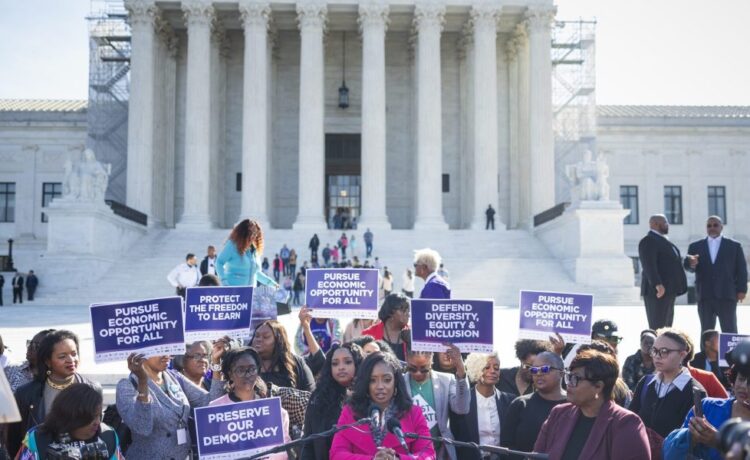Last month, a federal appeals court ruling enjoined The Fearless Fund from awarding grants to Black women entrepreneurs in the latest of a long string of attacks against diversity, equity, and inclusion (DEI) programs. The decision has troubling implications for every nonprofit, business, and individual in the United States.
The Fearless Fund and Fearless Foundation were created in 2018 to help address the disparities in venture capital funding for businesses founded by Black women and women of color. In 2022, only 0.1% of venture capital funding went to Black and Latino women founders and only 0.036% went to Black women.
When the Fearless Foundation launched a contest to award $20,000 grants to four Black women-owned businesses, they were sued by the American Alliance for Equal Rights—a nonprofit representing three anonymous non-Black women who claimed the contest was discriminatory and in violation of the Civil Rights Act of 1866, a post-Civil War law that was designed to allow Black people to become parties to contracts.
The lawsuit is part of a coordinated effort from conservative groups to undermine diversity programs. However, when the 11th Circuit Court agreed with the plaintiffs and preliminarily blocked the Fearless Foundation grants, it went much further: It managed to undermine the entire foundation of charitable giving in the U.S.
Charities have long collected donor funds and issued grants to help support specific demographic groups, helping to uplift people of different genders, ethnicities, and socioeconomic backgrounds for decades. If it stands and expands to other circuits, the Fearless ruling could effectively make it impossible for charities to ensure funds are directed in accordance with their mission. It could also subvert the wishes of the 60% of U.S. households who donate to charity in a given year.
The implications of the Fearless ruling extend far beyond the nonprofit world. The court allowed these parties to remain anonymous, which encourages a cottage industry of perennial lawsuits, exposing businesses to endless legal challenges with little recourse.
Worst of all is the chilling effect this ruling and others like it may have in corporate boardrooms and C-suites across the country. As activist groups file ever more frivolous lawsuits, it’s important to recognize that their goal isn’t necessarily to win. It’s to make individuals and businesses question whether supporting diversity efforts at all is worth it.
Make no mistake: A survey we commissioned last year found broad support across racial, generational, and ideological lines for companies’ efforts to reflect the diversity of the American population, including among 67% of Republicans. And companies that do prioritize diversity outperform those that don’t. But even with these certainties, the threat of a lawsuit can be a heavy thumb on the scales when a business is deciding how seriously to invest in DEI programs.
Where do we go from here? The Fearless Fund is reviewing all options when it comes to responding to the 11th Circuit Court’s ruling and remains committed to its mission of investing in underrepresented groups, including Black women. We know this case concerns much more than just a grant program. It’s about the fight for equity—and those of us who are in this fight must be loud and unwavering about our commitments and resolve. Otherwise, the extremists who are abusing the legal system will win.
More must-read commentary published by Fortune:
The opinions expressed in Fortune.com commentary pieces are solely the views of their authors and do not necessarily reflect the opinions and beliefs of Fortune.














